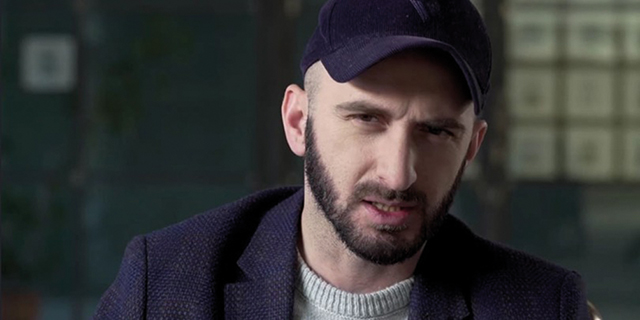The Body Shop – Georgia, which produces self-care products, cosmetics, and other products, announced this week at a presentation to the Tbilisi City Council, that it had published an “empowerment book” for women.
The book, titled ‘Love Yourself’, is intended to empower women by releasing them from the social standards that are often set up by their opposite gender. The book is said to be based on the true stories told by 13 women, but all seven of its authors are men.
The authors are: Giorgi K. Kekelidze, Basa Janikashvili, Dato Gorgiladze, Alexander Lortkipanidze Irakli Shamatava Gia Murghulia and Toresa M. Mossy.
The Body Shop – Georgia stated that the authors were paid “a small salary” for their work, but not the women who shared with the writers their stories.
The Body Shop’s failure to hire a single woman author despite the fact that the company wanted the book to be about women’s issues was criticized by many in Georgian society. The Body Shop responded to this criticism with the following statement.
“Women have been humiliated by their opposite sexe and are confined to beauty standards. The novels in the first book series were written by men in order to represent themselves as these brave women. The second edition, which will include more women writers, is currently under construction.
The Body Shop later deleted the Facebook post that mentioned the well-known male authors, but did not reveal the women behind the stories. This left readers with the impression the book was written by “men about women”.
Irina Adeishvili, the head of the marketing department at the company, told RFE / RL that “the brand understands its responsibility.” “We want these girls to be the main characters. We needed the book by August and we wanted to use all proceeds to help women who have been victims of violence. The first step was to publish a digital version, but it did not get much attention. So, it was decided to print the book in order to reach as many people as possible.
The book’s authors, Toresa Mossy, Alexander Lortkipanidze, and Giorgi K e kelidze, have also responded to criticism. Mossy, Lortkipanidze and Kekelidze all responded to the criticism.
Kekelidze is a writer and director of the National Parliamentary Library. Since then, several women have accused him of sexual harassment. Women decided to speak up after learning that he wrote a section of the book about “women empowerment.”
One of these women said that Kekelidze contacted her about 7-8 years back via Facebook and offered her sex. Kekelidze, despite her refusal, tried to communicate with her in other ways. He even got her phone number and started calling her.
“He offered sex.” He told me he had sex many of my friends and tried to seduce by this method. I told him that I didn’t want to be in a relationship with this man,” she said. She added that the process was depressing and annoying, lasting almost three years.
When she posted about her case on Facebook a number other women commented, some of whom claimed Kekelidze gave them inappropriate compliments while they were minors.
Giorgi Kekelidze replied on Facebook, admitting the “tiresome” flirtation on his part. He noted that it was years ago, and he’s changed a lot since then.
“Years back, I could have given someone a reason to interpret something because of my overly-active and boring flirtations.” I don’t have any idea, I can’t say. I’m ashamed of my “flirtatious period” and I have apologized to these women many times.
Kekelidze’s post, however, disappeared within an hour. He then wrote a post in which the word “flirtations”, but not “boring”, was still present.
Kekelidze also stressed that he did not commit any “violence.”
“I write this first and foremost for those who believe that Giorgi is a man as great as God. I am also a human, and I’ve made mistakes. I apologize now. But, there was never anything violent. Ever. Kekelidze wrote: “I cannot and will never be blamed for this.”
The Body Shop – Georgia apologized later to Facebook users: “We’re sorry that we didn’t convey our message the way we intended. One of the ideas behind this project was to have men write stories about women. Our goal was to get people talking about this topic, both women and men.
“Once more, we would like to highlight that the main characters in this project are courageous women who speak about how they overcame obstacles; how they learned how to love themselves.
“We’ve heard different opinions and comments from a number readers that convince us we weren’t able to choose the right communication form,” they admitted.
“I think that there was a communication problem,” said Ana Nikoladze, a feminist activist. “The book, titled ‘Love Yourself’, is about women’s empowerment and freedom from standards. Yet the title is only followed by male names.”
She said that feminist circles are still debating whether men should write about woman, or if men have the right, to write about their bodies and about the place of male authors in modern feminism. Some people believe that men should be involved in the dialogue. However, there are certain conditions that must be met. Women should also be able to speak up for their own rights.
Irina Adeishvili, The Body Shop’s Irina told RFE/RL that the company learned a valuable lesson and will involve more experts in gender sensitive projects in the future.
By Ana Dumbadze
Read More @ georgiatoday.ge













